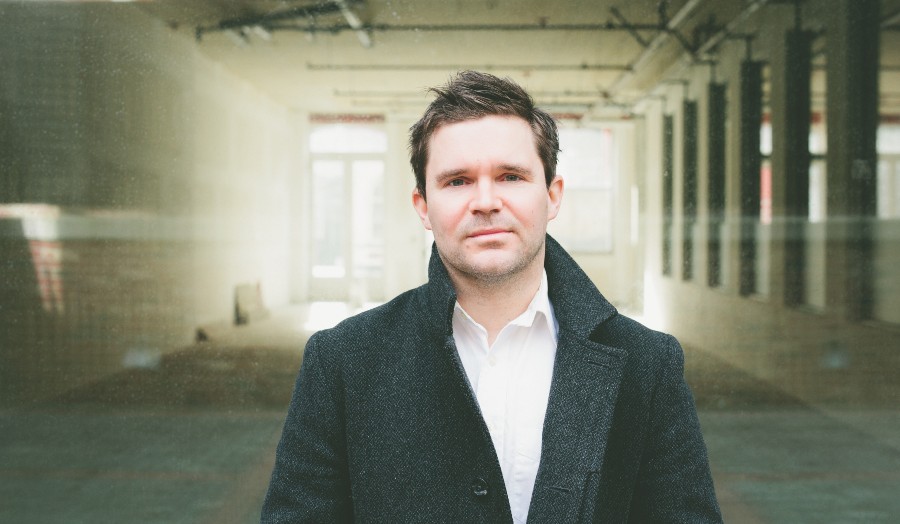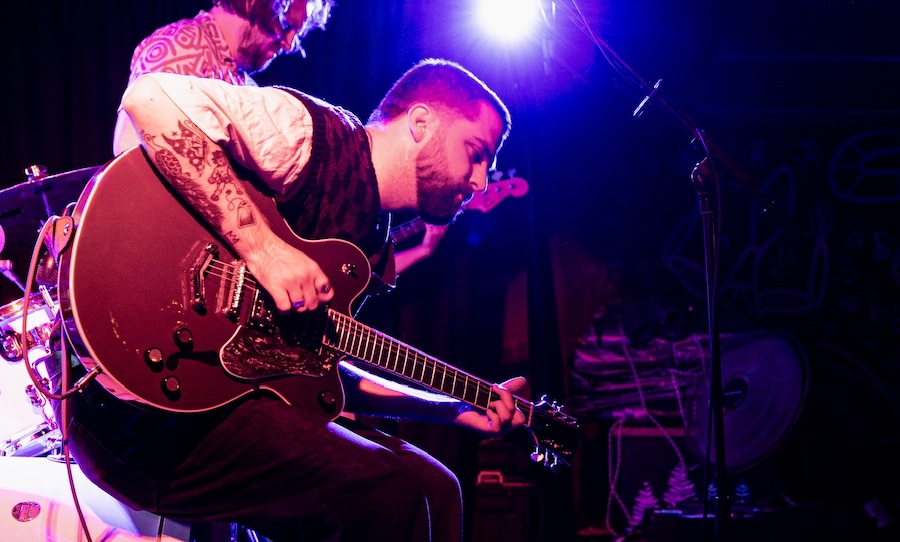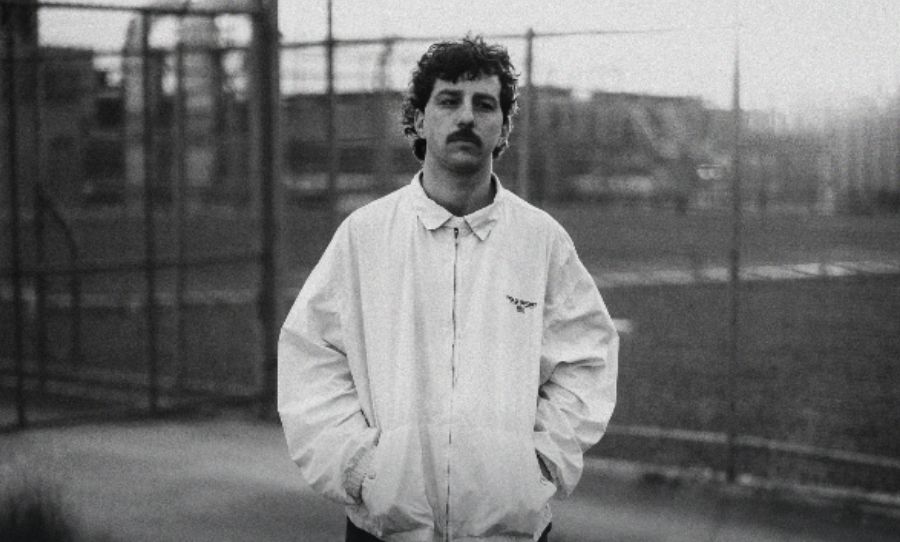J. M. Miro hit the ground running with Ordinary Monsters debuting in fifth place on the Times Bestsellers list. Having previously made headlines in what was called a “heated auction” in an all-out bidding war for the Talents trilogy, the Macmillan imprint bought U.S. rights, for a seven figures deal.
A dark and captivating historical fantasy series, by J. M Miro, introduces us to the world of the Talents. Set in the dark and terrible times of the Victorian era, Ordinary Monsters (Bloomsbury) tells the story of the gifted, and orphaned children who must save it. From the gaslit streets of London to the lochs of Scotland where the realms of the dead and the living collide. The gifted children (The Talents) have been gathered together to discover the truth about their abilities and the chilling nature of the force that is stalking them.
Fresh off a promotional tour, from his idyllic, moody, and atmospheric home in the Pacific Northwest, J.M Miro had a chat with us about a few of his favourite things, not to mention he has given us some sound romantic advice, and quite the stellar list of book suggestions.
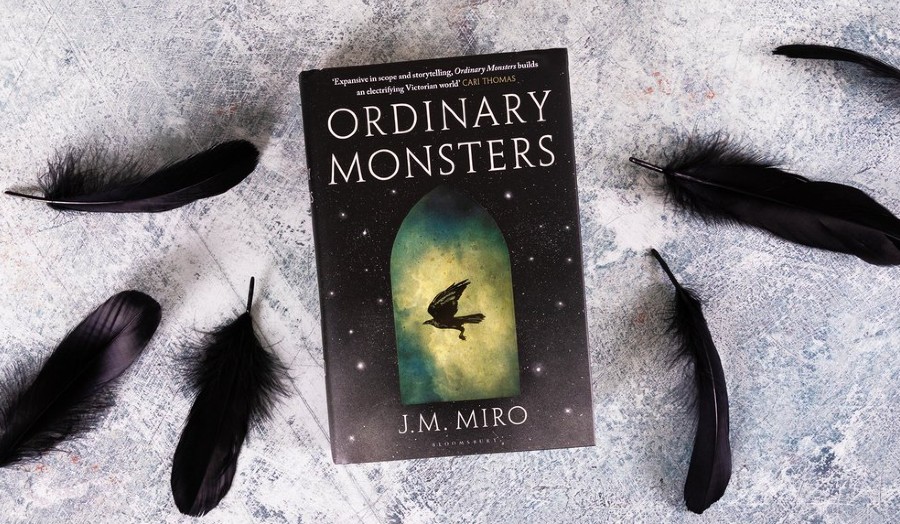
Happy: What are you up to today?
J. M. Miro: I’m just back from the UK as of last night, home after a week of promoting Ordinary Monsters, taking a break from working on Book 2 of The Talents. So, today: unpacking, writing a little, peering out my window at a grey sky, trying to stay awake!
Happy: Tell us about your suburb, what do you love/not love about where you live?
J. M. Miro: I live with my family about one street back from the ocean, here on the west coast of Canada, just above a lagoon and bird sanctuary. I love the play of light on the water, being able to walk down to the beach, I love the open and quiet airiness of it here, but also how close we are to the forest. Forests here in the Pacific Northwest are dark, thick, wet, and often misty. I love all of it.
Happy: Describe your average workday?
J. M. Miro: Ah! It’s not glamourous, alas. My wife (also a writer) and I have two school-age kids, so our days are structured around all the usual domestic business of young families. Average day: wake the kids, make lunches, drop them off at school. Write at home until the end of the day. Then pick up from school, run kids to activities, dinner, bedtime, etc. The best part: sometimes all of that can be done in pyjamas.
Happy: What about your ultimate day?
J. M. Miro: Oh. Easy. I’d sleep late, wake with no worries, spend the day book-shopping with my family. A coffee in my hand the whole time. Bliss.
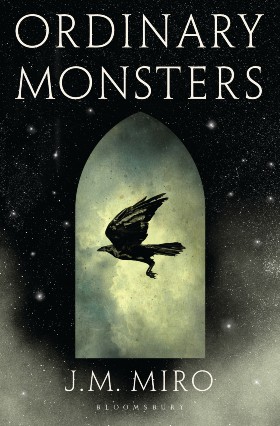
Happy: Which book are you currently reading?
J. M. Miro: I’m always reading several books at once, some for pleasure, some for work. I just finished re-reading Patricia McKillip’s The Forgotten Beasts of Eld, after hearing about her passing. It’s a beautiful novel, far ahead of its time, written with a gorgeous simplicity and clarity of vision. It’s about a young sorceress who lives alone in a forest, who has the ability to call rare and mythical creatures to live with her, from all over the world. One day a baby is left with her, and she finds herself having to learn to love again. Wonderful stuff.
Happy: What did you read or watch growing up that fuelled your passion for storytelling?
J. M. Miro: I devoured fantasy novels as a child in the eighties, all of the big blockbuster series of the time – Robert Jordan, Tad Williams, Anne McCaffrey, Terry Brooks, Dragonlance, etc. But I can tell you the very book that made me want to be a writer. It was Ursula K Le Guin’s A Wizard of Earthsea. It was given to me by my sixth-grade teacher, Mr. Balchin (to whom Ordinary Monsters is dedicated), who saw a lonely boy in need of some kindness. That novel changed my life. It felt utterly strange, different from everything else I was reading, a story of simplicity and power in which the quest is as much internal as external. I couldn’t get it out of my head. I realized I wanted to do that, too; I wanted to write novels.
Happy: That’s very inspiring, we are definitely putting Ursula K Le Guin on our TBR list! Which book did you last read that opened your eyes and mind to a new perspective?
J. M. Miro: There are so many, really, and I think we’re living in a time of increasing diversity of voices and perspectives. We’re very lucky right now, in that respect. Most recently, I would say it was the non-fiction book There Plant Eyes, by M. Leona Godin, a profound and delicate account of living with blindness, but also a cultural history of blindness as viewed from the inside, for once. It dazzled me.
Happy: Which book do you keep coming back to?
J. M. Miro: Oh, there are so many. Above all, perhaps: New and Collected Poems, by Czeslaw Milosz. Milosz was a Polish poet who won the Nobel Prize in Literature. The poems are expansive and wise, with a delicate and strange kind of music in them. Filled with sadness, and regret, but also a vast perspective on the nearly century-long life he lived and wrote through. There is a sense in which his real subject was the passage of time and what it means to be on this earth and of it and to find peace in that.
Happy: Is there a book that you consider a must-read that imparts valuable life lessons?
J. M. Miro: Absolutely! See above.
Happy: If you had a first date book list, what would it be?
J. M. Miro: Oh my goodness, I couldn’t even begin to… Hmm. What about this instead? The perfect first date would be: stepping into a quiet bookstore, walking the aisles, exchanging favourite reads, and talking about why and when you read them and what you loved about them. What a wonderful way to get to know a person!
Happy: Very cool, thanks for the romantic advice, and thanks again for chatting with us today.
The biggest congratulations to J. M. Miro! #OrdinaryMonsters has rocketed to #5 on the Sunday Times bestseller chart this week! 🎉 🎊 🥂 pic.twitter.com/6yrsO7fyzJ
— Bloomsbury Books UK (@BloomsburyBooks) June 7, 2022
J.M. Miro will be speaking to Cheryl Arkle for the Better Reading Podcast near the end of June, early July.
Ordinary Monster is out now via Bloomsbury.
